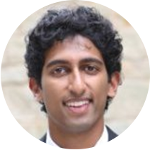-
Member Login
- Home
- About
- Institute Groups
- Membership
- Events
- News & Publications
- Institute Programs
- Resources
- Jobs Board
- Contact Us
- Site Info
Jolisa Brooks & Gyan de Silva
Jolisa Brooks & Gyan de Silva
Abstract | Information to impact: Effectively communicating science to save the oceans
The complexity of the ocean and its interaction with anthropogenic stressors solidifies its status as a super-wicked problem. However, the issue’s very nature provides an opportunity for innovation and coalition building amongst the public and private sectors. The Collective Intelligence Network for Saving the Oceans (CINSO) uses values-based communication to effectively transform scientific information into impact; we have to relate the real changes in ocean health to the cultural, social, professional, and epistemic language of our audiences. Instead of promoting polarizing, science-monopolized media narratives, CINSO helps curate media that connects science and environmental stressors to the lives of all people, not just liberal environmental justice warriors. When we speak to the individual and community using values-based communication, we: 1. Acknowledge that cultural identity can overpower scientific reasoning, 2. Abandon the communication models of knowledge deficitfallacy that belittles skeptics and knowledge surfeit that bombards the public with facts, and 3. We account for community members’ beliefs and empower them to have a voice and place in the conversation. CINSO recognizes that scientists should not monopolize environmental stories, but rather we should actively engage practitioners, journalists, researchers and community members through fact-based narratives. Our network gives these groups the tools to communicate science effectively and galvanize their communities to act. The language determinant/ values-based analysis is a useful science-communication tool. This application involves presenting a scientific concept or opportunity through the lenses of Research, Policy, Business, Media and Community. In the context of CINSO we are using Tim Lenton’s “Earth System Tipping Points “ to create opportunities that build resilient and sustainable communities in the Caribbean; curate social and large-scale media; increase private sector investment; and influence policy outcomes. The CINSO network is a collaborative effort between Yale University, National Geographic Society, Richard Branson, Tim Lenton, Paul Lussier and Ocean Unite.
Bio | Jolisa Brooks & Gyan de Silva
 Jolisa Brooks
Jolisa Brooks
Jolisa Brooks is pursuing a Masters of Environmental Science at the Yale School of Forestry & Environmental Studies. At Yale, Jolisa’s research focuses on environmental peace-building in international development through analyzing and tackling the resource curse. She has also served as a consultant to National Geographic on their world oceans project. During her undergraduate career she conducted geological research in Antarctica and Ushuaia, Argentina where she analyzed sustainable industrial fishing policies to protect keystone species. After earning her bachelors, she served as a corporate responsibility analyst for ArcelorMittal USA. In that capacity, she worked on a range of projects including, land restoration at former industrial sites, and creating and investing in preexisting STEM programs for inner-city Chicago youth. Jolisa has also worked on international policy as a legislative fellow with the US. House Committee on Foreign Affairs where she contributed to the Power Africa Initiative; Women, Peace & Security 2016; Education for All 2016 and the USAID Frontline Civilian Project. Jolisa received her Bachelors degree from Michigan State University, where she studied Political Theory and Science, Technology, Environment & Public Policy. Upon graduation, Jolisa will join the US Foreign Service.
 Gyan de Silva
Gyan de Silva
Gyan de Silva is currently pursuing a Masters in Environmental Management at the Yale School of Forestry and Environmental Studies, where he is exploring interdisciplinary approaches to biodiversity and nature conservation. Here, Gyan has been part of teams of student consultants to the National Geographic Society, the IPCC and the Virgin Earth Challenge. He is also the incoming leader of Yale’s International Society of Tropical Foresters (ISTF). He obtained his undergraduate degree in Ecological Science with Management at the University of Edinburgh.
In between his undergraduate and graduate studies, Gyan spent two years in Sri Lanka working for IUCN as a consultant. At IUCN, he became involved in work for both public sector and private sector clients. He provided research and aided in fieldwork for projects ranging from terrestrial and marine (corals and fisheries) biodiversity conservation, to company CSR ecological restoration projects, to developing national biodiversity policy.
We acknowledge and value the rights and interests of Indigenous Peoples in the protection and management of environmental values through their involvement in decisions and processes, and the application of traditional Indigenous knowledge.

